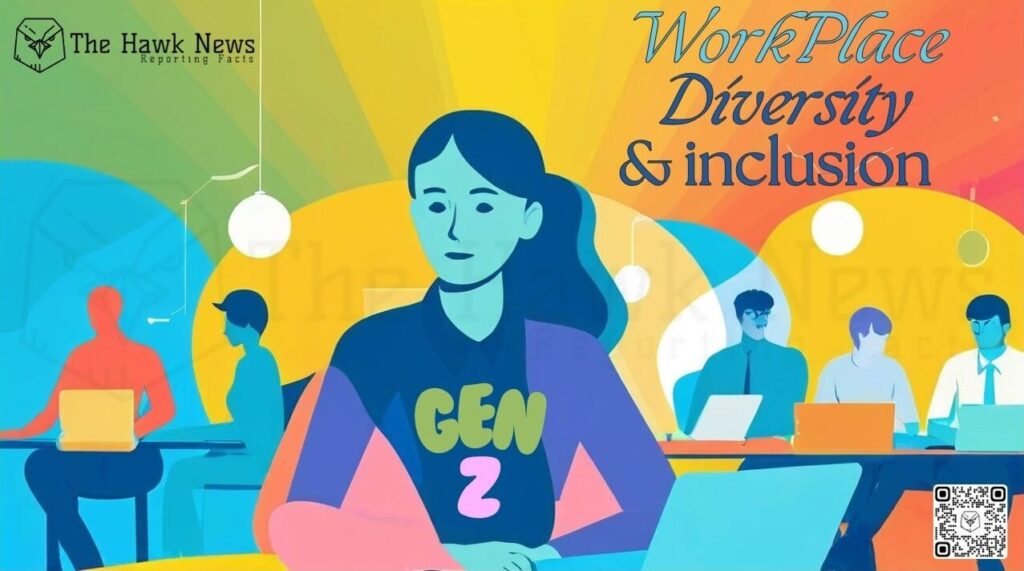
The workforce is rapidly evolving, influenced by technological advancements, globalization, and shifting societal expectations. Among the most discussed topics today is the struggle of Generation Z (Gen Z) to find stability in their careers.
Born roughly between the mid-1990s and early 2010s, Gen Z is the first generation to grow up with the internet, smartphones, and social media as integral parts of their lives.
This unique background shapes their attitudes, expectations, and experiences in the workforce, contributing to their difficulties in achieving job stability.
1. The Changing Nature of Work

One of the primary reasons Gen Z struggles with job stability is the changing nature of work itself. The traditional career path, where individuals would stay with one company for decades, climbing the corporate ladder until retirement, is becoming less common.
Today’s economy is characterized by the gig economy, freelancing, and contract work, which offer flexibility but often lack long-term security.
Many companies are moving away from offering permanent positions with benefits, instead opting for short-term contracts or freelance work.
This shift provides businesses with more flexibility, but it leaves workers, particularly younger generations, in a precarious position. Gen Z, entering the workforce in this new landscape, faces uncertainty as stable, long-term jobs become scarcer.
2. High Expectations and Job Satisfaction
Gen Z is known for having high expectations when it comes to their careers. Unlike previous generations, who often prioritized job security and steady income, Gen Z values job satisfaction, purpose, and work-life balance. They are less willing to settle for jobs that do not align with their values or provide personal fulfillment.
This desire for meaningful work can lead to frequent job changes as they search for the perfect role. While this pursuit of happiness and fulfillment is commendable, it can result in instability as they move from one job to another, often within a short period. Employers may view this as job-hopping, raising concerns about their commitment and reliability, which further complicates their path to stable employment.
3. Mental Health and Burnout

The emphasis on job satisfaction and the pressure to succeed can also contribute to mental health challenges and burnout among Gen Z workers. This generation is more open about mental health issues than previous generations, and many struggle with anxiety, depression, and stress, often exacerbated by the demands of the modern workplace.
The high expectations they place on themselves, combined with external pressures such as social media comparisons and economic uncertainty, can lead to burnout. When they reach a breaking point, they may leave their jobs without a clear plan, seeking relief from their overwhelming stress. This cycle of burnout and job-hopping can make it difficult for Gen Z to find and maintain stable employment.
4. The Impact of Technology
Technology has a profound impact on Gen Z’s approach to work. Growing up in a digital world, they are adept at using technology to their advantage, whether it’s for remote work, online networking, or learning new skills. However, the same technology that empowers them can also contribute to instability.
The rise of automation and artificial intelligence (AI) threatens many traditional jobs, creating uncertainty about the future of work. Gen Z workers must constantly adapt to new tools and platforms, staying ahead of technological advancements to remain relevant in their careers. This constant need for upskilling and adaptation can create stress and uncertainty, as they wonder whether their jobs will exist in the next few years.
Additionally, the prevalence of remote work, accelerated by the COVID-19 pandemic, has blurred the boundaries between work and personal life. While remote work offers flexibility, it can also lead to isolation, difficulty in building workplace relationships, and a lack of clear career progression, contributing to a sense of instability.
5. Economic Uncertainty
Economic factors also play a significant role in Gen Z’s struggle for stability. Many entered the workforce during or shortly after the Great Recession of 2008 or the COVID-19 pandemic, both of which had profound effects on the global economy. The job market became highly competitive, with fewer opportunities available, particularly for entry-level positions.
Economic instability means that companies are more cautious about hiring and are often quick to lay off workers during downturns. Gen Z, often being the newest employees, are more vulnerable to these layoffs. The lack of job security, coupled with rising living costs and student debt, creates a challenging environment for Gen Z to achieve financial stability and long-term employment.
6. Education and Skills Gap
Despite being one of the most educated generations, with many pursuing higher education, Gen Z faces a significant skills gap when it comes to the demands of the modern workforce. The rapid pace of technological change means that many educational institutions struggle to keep up with the skills needed by employers.
As a result, Gen Z may find themselves with degrees that don’t fully prepare them for the jobs they want. This mismatch between education and job requirements can lead to underemployment, where they are working in jobs that don’t utilize their full potential or provide the career growth they seek. This situation often leads to job dissatisfaction and frequent job changes, further contributing to instability.
7. The Gig Economy and Freelancing
The gig economy, characterized by short-term contracts and freelance work, appeals to many Gen Z workers due to its flexibility and independence. However, this type of work also comes with challenges. Gig workers often lack the benefits and job security that come with traditional employment, such as health insurance, retirement plans, and paid leave.
While freelancing can offer the freedom to choose projects and clients, it also requires constant hustle to secure work, manage finances, and build a personal brand. The uncertainty of gig work can lead to financial instability, especially for those who are just starting their careers and may not yet have a strong client base or network.
8. Generational Differences in the Workplace
Generational differences in the workplace can also contribute to Gen Z’s struggle for stability. They are often working alongside Baby Boomers, Gen X, and Millennials, each with their own work styles, communication preferences, and expectations. These differences can lead to misunderstandings, conflicts, and feelings of being out of place, particularly for younger workers who may feel that their contributions are undervalued or overlooked.
Gen Z tends to prefer open communication, collaboration, and feedback, and they often look for leaders who are mentors rather than traditional bosses. When they don’t find these qualities in their workplace, they may feel disconnected or dissatisfied, leading to a lack of commitment and eventual job change.
9. The Role of Employers
Employers also play a crucial role in addressing the challenges faced by Gen Z in achieving job stability. Companies that offer flexible work arrangements, opportunities for continuous learning, and a supportive work environment are more likely to retain Gen Z employees. Providing clear career paths, mentorship, and regular feedback can help young workers feel valued and see a future with the company.
However, many companies are still adapting to the needs and expectations of this new generation. Those that fail to do so risk high turnover rates, as Gen Z workers move on in search of better opportunities that align with their values and career goals.
Conclusion
The struggle of Gen Z to find stability in the workforce is a multifaceted issue influenced by economic factors, technological advancements, generational expectations, and the changing nature of work itself. While Gen Z brings a fresh perspective and valuable skills to the workplace, they face significant challenges in securing long-term, stable employment.
To address these challenges, both employers and Gen Z workers must adapt. Employers need to create environments that support the unique needs of this generation, offering flexibility, growth opportunities, and mental health support. Meanwhile, Gen Z workers can benefit from continuous learning, resilience, and a willingness to adapt to the evolving job market.
By understanding the root causes of job instability and working together to find solutions, we can help Gen Z build successful, fulfilling, and stable careers in the modern workforce.